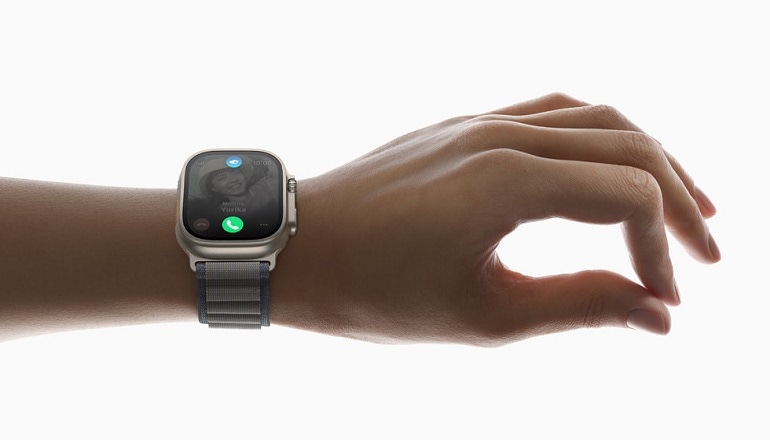Gloomy Post Christmas for Apple as Smartwatch Sales Are Banned
ITC ruling that latest smartwatches violate health care firm patents leaves electronics giant in a bind.

At a Glance
- The International Trade Commission has banned Apple from selling its Watch Series 9 and Ultra 2 smartwatches in the U.S.
- The decision stemmed from Apple allegedly infringing upon sensor patents owned by Masimo, which sells patient monitors.
If you received an Apple gift card for the holidays and want to use it to help purchase its latest smartwatches, think again. On Tuesday, the International Trade Commission (ITC) imposed an official ban on Apple importing its latest smartwatches, the Watch Series 9 and Watch Ultra 2, into the U.S. According to the ITC, the blood oxygen sensor in these watches violates a patent owned by medical device maker Masimo.
The sticky situation was brewing well before Christmas, in fact back to October, when the ITC ruled that Apple’s latest smartwatches, infringed patents owned by Masimo Corporation and Cercacor Laboratories, Inc. for a blood oxygen sensor that can read a person’s pulse. Apple introduced its Watch Series 9 and Ultra 2 smartwatches in September, incorporating numerous advanced features.
The ITC’s ruling to ban import and sales of the allegedly infringing smartwatches, made before the Christmas holidays, was vehemently opposed by Apple, which attempted to get a stay on the ban. Before Christmas, the Biden Administration also decided it would uphold the FTC ban, leaving Apple with choice but to comply.
On Apple’s website, the Watch Series 9 and Watch Ultra 2 are stated as being currently unavailable, and the products are no longer on display in the retail Apple stores. However, the products are still available on some third-party sites such as Amazon, where both products are for now still listed as being available. Depending on demand, though, that situation could eventually change.
The situation does not affect Apple’s older smartwatches, which do not contain the allegedly infringing sensor technology and are still available through Apple as well as third-party sites. For instance, Apple is promoting its SE, which lacks the oxygen sensor.
Apple reportedly issued a statement Tuesday stating “We strongly disagree with the USITC decision and resulting exclusion order, and are taking all measures to return Apple Watch Series 9 and Apple Watch Ultra 2 to customers in the U.S. as soon as possible.” Apple has filed a court action with the Federal Circuit U.S. Court of Appeals to lift the ban. According to reports, the US Customs and Border Protection is expected to decide if the redesigned versions of its watches violate Masimo's patents on January 12, 2024.
More Patent Disputes Coming?
As users demand more functions in their personal consumer electronic devices, devices such as smartphones and smartwatches are incorporating more sophisticated technology that can performs tasks such as location tracking and monitor many health and fitness functions. Because smartwatches are designed to always be worn, it seemed natural that the devices incorporate technology smart enough to be health monitors and help track medical conditions. However, as more intelligent technology is incorporated into such devices, the risk grows of the potential for patent infringement.
Apple has reportedly been at odds with Masimo, a supplier of patient monitoring products based in Irvine, CA, even before the recent smartwatch dispute.
In January 2023, a U.S. judge ruled that Apple infringed upon one of Masimo’s pulse oximeter patents in some of its smartwatches that incorporate light-based pulse oximetry functionality and components. Masimo had originally filed suit against Apple in 2021, alleging the electronics company violated several of its patents.
About the Author(s)
You May Also Like



.jpg?width=300&auto=webp&quality=80&disable=upscale)

